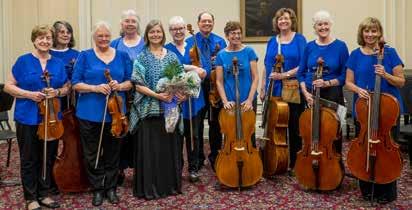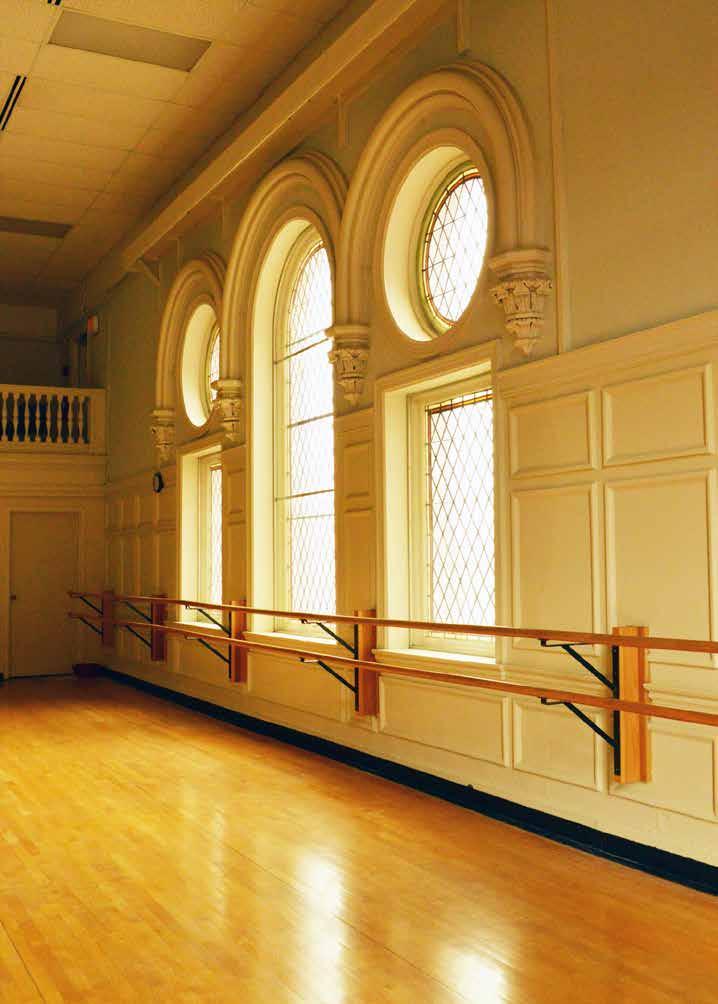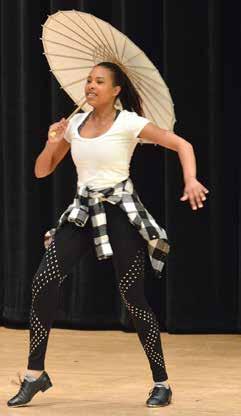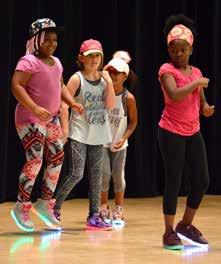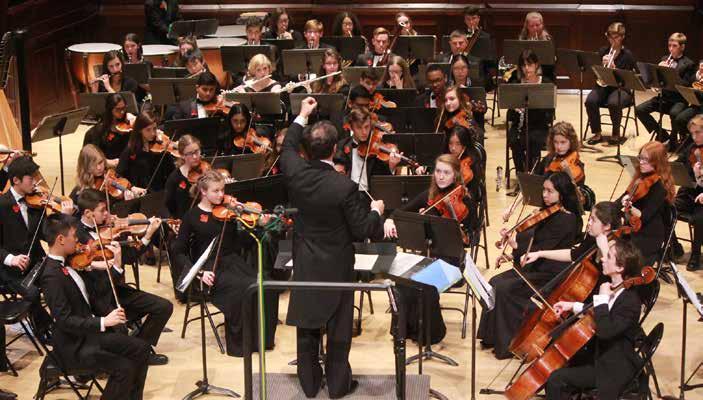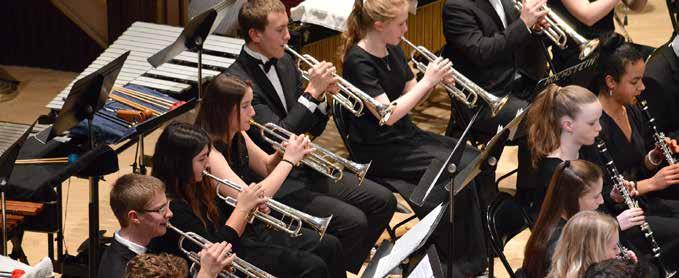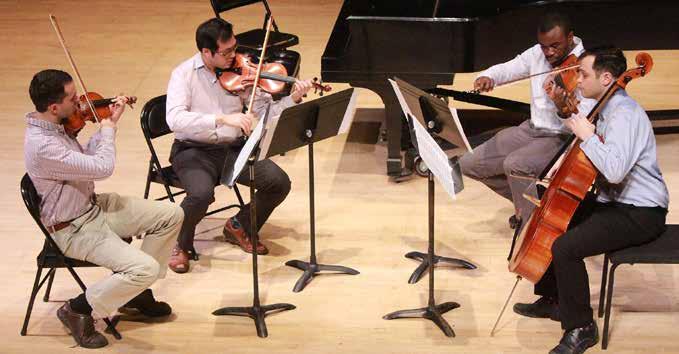
2 minute read
MUSIC THEORY & HISTORY
h istory musi C - t heory &
A knowledge of music theory is an essential tool for musicians and gives both performers and listeners valuable insights into a composer’s creative thoughts and technical methods. Students may take advantage of a curriculum-sharing partnership between Hochstein and Eastman Community Music School. The classes listed below are offered at Hochstein, and additional offerings are available at Eastman CMS.
Advertisement
A special feature of Hochstein’s curriculum: theory classes meet in the School’s state-of-theart Music Lab, where students get the opportunity to develop facility with special music programs, Sibelius, Auralia, and Musition.
This class reviews the fundamentals of music theory (note-reading, meter, scales/key signatures), with more in-depth work on intervals, chords, Roman Numeral analysis, embellishing tones, and beginning Species Counterpoint, geared for teens and adults. Pre-requisite: Some experience with note-reading.
AP Music Theory: Form and Harmony Lynnann Wieringa, Instructor Wednesdays, 5:00-6:00 pm grade 10 - adult, or by teacher recommendation
Building on the concepts learned in Basic Theory, this class reviews chords and Roman Numeral analysis, while delving more completely into the areas of cadence types, figured bass, harmonization, and secondary chords. In addition, students will engage in some written and listening analysis and dictation and sightsinging, but it does not cover all materials necessary for preparation for the AP test. Pre-requisite: Basic Music Theory. Students who have some Music Theory experience but aren’t sure they are ready for AP Music Theory should take the theory placement exam to assess which class is the right placement for them.
Music History Survey Rob Goodling, Instructor Tuesdays, 6:00-7:00 pm age 14 and older
Examine the history and development of music and listen to masterworks of representative composers from the 16th-century Renaissance, Baroque, and Classical eras, 19th-century Romanticism, Impressionism and Post-Romanticism, 20th-century English Folk-Song Renaissance, Expressionism, Neo-Classicism, Modernism, and Post-Modernism developments through and including Jazz, Rhythm & Blues, Rock ‘n’ Roll, and Rap. A textbook/companion CD rental fee of $25 is in addition to the tuition fees.
Note: Classes occasionally meet for double sessions to review for exams; individual-lesson students should avoid scheduling their lessons immediately adjacent to Music History class time.
Fees for all Music Theory and Music History Survey: $20 registration fee. $612* yearly
tuition payable in quarterly installments of $153 each. For students enrolled in individual lessons at Hochstein, $450 yearly tuition payable in quarterly installments of $112.50.

